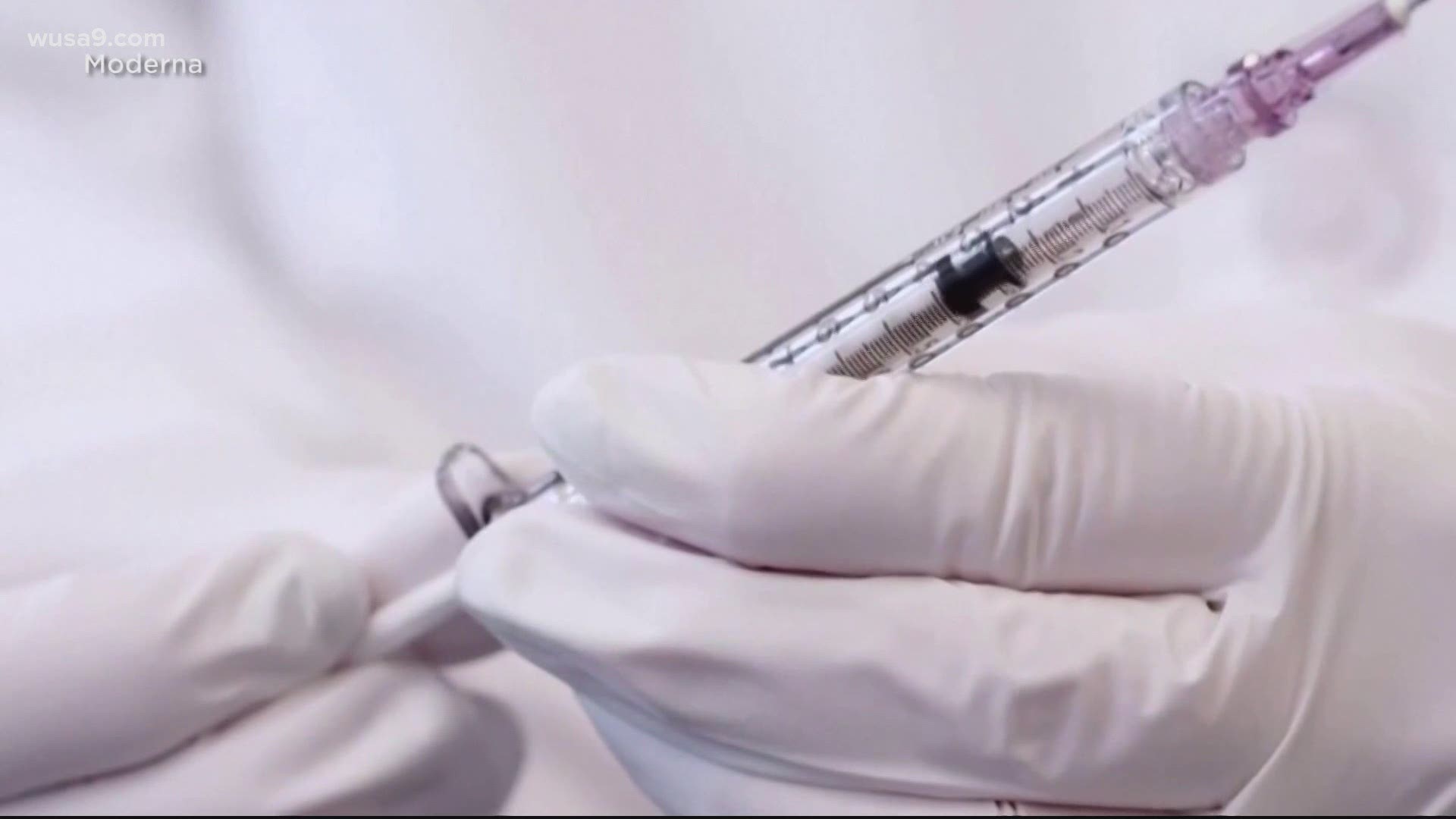WASHINGTON — The U.S. announced on April 13 that they are recommending a "pause" of single-dose Johnson & Johnson COVID-19 vaccines from being administered as they investigate "extremely rate" blood clot reports.
Centers for Disease Control (CDC) and the Prevention and the Food and Drug Administration (FDA) said the clots occurred in six women about 6 to 13 days after they were vaccinated, and that all six of the cases were in women between 18 and 48.
The administrations said the clots are also known as cerebral venous sinus thrombosis (CVST), where clots occurred in veins that drain blood from the brain.
New decisions mean new questions, and the Verify team is here to bring you the facts. Here's what we know about the uncommon CVST, and what symptoms you might feel if you were to have it.
QUESTION:
What is cerebral venous thrombosis and what symptoms should you look out for?
ANSWER: CVST is very rare, and involves low levels of blood platelets. While a vast majority of those who have taken J&J had mild to no side effects, CVST can be extremely dangerous and requires immediate treatment.
SOURCES
- The Centers for Disease Control and Prevention and Food and Drug Administration joint statement on the decision to temporarily pause
- Johns Hopkins Medicine FAQ on CVST
- Dr. Panagis Galiatsatos, assistant professor at Johns Hopkins Medine
PROCESS:
The CDC and FDA are recommending a pause of the Johnson & Johnson/ Janssen vaccine following six reported cases of a “rare and severe type of blood clot.”
In those six cases, a blood clot called “cerebral venous sinus thrombosis” accompanied low levels of blood platelets. All six cases involved women between the ages of 18-48 and occurred 6-13 days after they received the J&J vaccine.
But of the 6.8 million doses of the J&J vaccine that have been administered in the U.S., the vast majority had no or mild side effects. The Verify team is breaking down any questions you might have about vaccines, including the latest on CVST.
What is CVST?
CVST currently affects about 5 people in 1 million each year, according to the latest research from Johns Hopkins Medicine, and can occur when blood clots form in your brain and result in a stroke.
“Cerebral venous sinus thrombosis (CVST) occurs when a blood clot forms in the brain’s venous sinuses, the medical school writes online. “This prevents blood from draining out of the brain. As a result, blood cells may break and leak blood into the brain tissues, forming a hemorrhage. This chain of events is part of a stroke that can occur in adults and children.”
Of the more than 6.8 million Americans who have received a Johnson & Johnson COVID-19 vaccine, there have been six cases of these rare blood clots and low platelet counts.
While CVST is incredibly unlikely in relation to COVID-19 vaccines, officials say to watch for symptoms within three weeks of getting the J&J vaccine. Those symptoms might include severe headaches, leg pains, shortness of breath, or pain in your abdomen.
RELATED: VERIFY: Explaining how the Johnson & Johnson vaccine works and what makes it different from others
What are potential risk factors?
Dr. Galiatsatos is an assistant professor at Johns Hopkins Medicine.
He told our Verify team that the chance of getting CVST is few and far between with these vaccines, it's important to be aware of any potential signs and know genetic predisposition can play a role.
"Keep in mind, for many of our patients, they may be walking around with other risk factors that put them at risk for the blood clot, in addition to getting COVID-19," Galiatsatos said.
"Age is a risk factor, and so the older you are more likely to get COVID-19 to develop a blood clot," he continued. "Some people have genetic predispositions that they aren't going to be aware of until this happens...so for many of our patients, especially when they're younger, we've sent them to blood doctors, dermatologists, who on earth, yeah, they have a clotting disorder."
Because it’s located in the brain which handles so many different functions, physicians need to approach this blood clot differently, Dr. Panagis Galiatsatos explained.
“So these clots there are managed kind of in a multidisciplinary fashion with the neurologists, neurosurgeons and other interventionalists to discuss risks and benefits of the intervention that's needed to help.”
During a call with members of the media on Tuesday, the FDA’s director for the Center for Biologics Evaluation and Research (CBER) echoed this distinction.
“Treatment of this specific type of blood clot is different from typical treatment for other types of blood clots which usually involves an anticoagulant, called heparin.” Dr. Peter Marks said. "With cerebral venous sinus thrombosis, heparin may be dangerous and alternative treatments need to be given, preferably under the guidance of physicians experienced in the treatment of blood clots. Of the clots seen in the United States, one case was fatal, and one patient is in critical condition.”
What are the symptoms?
While CVST is very unusual in relation to COVID-19 vaccines, officials say to watch for symptoms within three weeks of getting the J&J vaccine. Those symptoms might include severe headaches, leg pains, shortness of breath or pain in your abdomen.
Physical symptoms for CVST, according to Johns Hopkins, include the following:
- Headache
- Blurred vision
- Fainting or loss of consciousness
- Loss of control over movement in part of the body
- Seizures
- Coma
Common vaccine side effects include:
- Tiredness,
- Headache
- Muscle pain,
- Chills
- Fever,
- Nausea
How is CVST diagnosed?
Medical professionals urge that strokes and CVST must be taken care of urgently, and say patients recover best if they get treatment immediately. If you suspect a stroke based on the symptoms, have someone take you immediately to the emergency room, or call 911 to get help.
"The final diagnosis, however, is usually made based on how the blood is flowing in the brain," writes Johns Hopkins. "Imaging tests show areas of blood flow, and tests may be used to diagnose venous sinus thrombosis."
Those tests include:
- MRI scan
- CT scan
- Venography
- Angiography
- Ultrasound
- Blood tests
Have a question you want Verified? Email our team of researchers: VERIFY@WUSA9.COM


